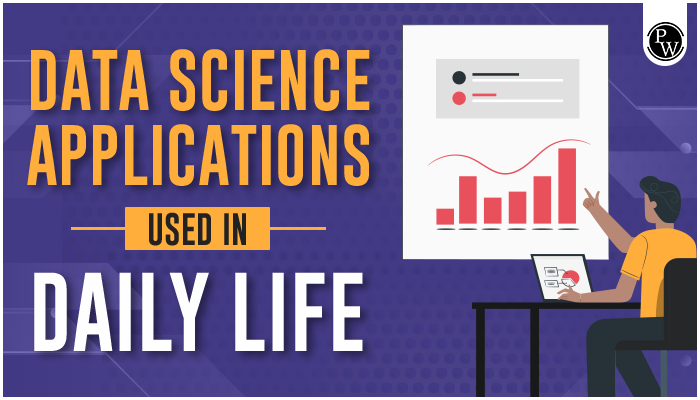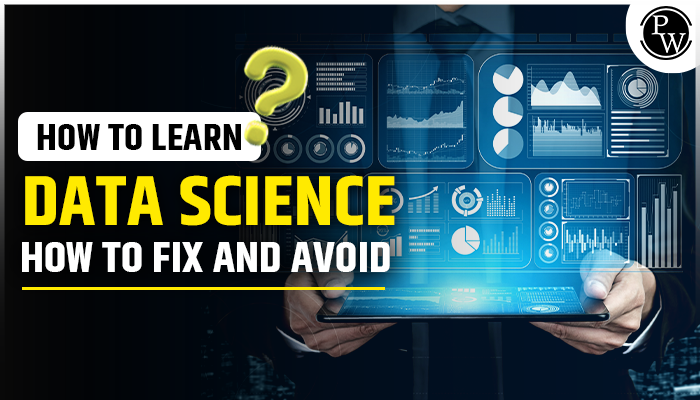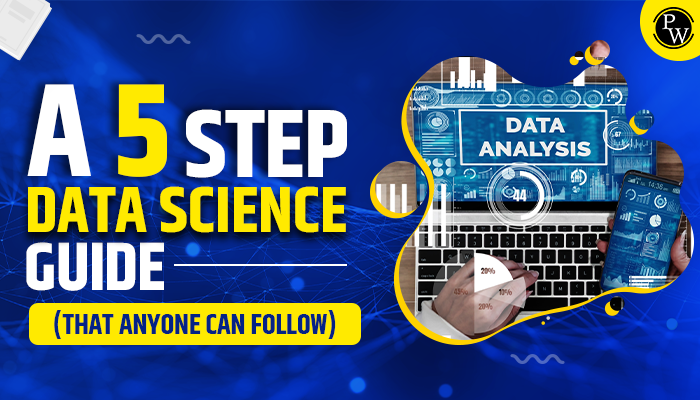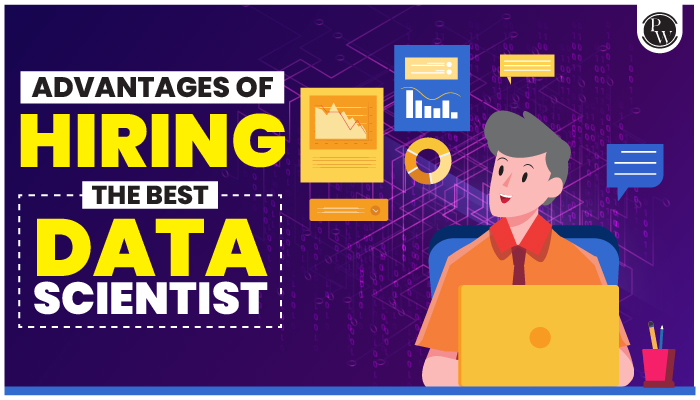Data science has shaped the way we live, work, and interact with the world around us and has become an essential part of who we are. Data science applications have spread across many industries as a result of the introduction of cutting-edge technologies and the expansion of data availability.
These data science applications are significantly impacting how people live their lives in various sectors, including healthcare, transportation, banking, marketing, education, and entertainment. We will examine some of the important issues in this article, including How will applications of data science be employed in daily life in 2023 and Which applications are used for data science.
Recommended Courses :
- Decode Data Science with ML 1.0
- Decode Full Stack Web Dev 1.0
- Decode JAVA with DSA 1.0
- System Design
How are Data Science Applications Used in everyday life?
Data Science Applications have become an integral part of the world in this era. Here, we’ve provided a list of all the Data-driven Applications used in Daily Life in 2023:
1. Data Science Applications in Health and Medicine
Medical research, drug development, and patient care have all been transformed by data science applications. Huge volumes of medical data are being used by researchers to understand diseases better, find novel drug targets, and create individualized therapy regimens. Data science applications analyse patient data, including genetic data, medical records, and lifestyle factors, to enable accurate disease diagnosis and treatment.
Additionally, data science is essential for managing healthcare, optimising resource use, and enhancing patient outcomes. Hospitals can forecast patient admissions using predictive analytics models, identify high-risk patients, and allocate resources accordingly. Healthcare providers may deliver individualized care, increase patient safety, and save healthcare costs by using data-driven initiatives.
Also read: The Role of Data Science in Healthcare Industry in 2024
2. Data Science used in Finance and Banking
The finance and banking sector heavily relies on data science to detect and prevent fraudulent activities, assess creditworthiness, and make data-driven investment decisions. Advanced machine learning algorithms are employed to analyze large volumes of financial data and detect patterns that indicate fraudulent transactions. By leveraging data science applications or techniques, financial institutions can mitigate risks, protect customers, and maintain the financial system’s integrity.
Credit scoring models, which evaluate a person’s and an organization’s creditworthiness, are also made possible by data science. These models assist banks and lending organizations in making knowledgeable loan decisions by analyzing a variety of data points, including credit history, income levels, and financial behaviour.
Also read: Data Science in Finance- Transforming the World of Banking
3. Data Science used in Marketing and Advertising
Data science application is revolutionizing how businesses communicate with customers and customize their marketing strategies in the fields of marketing and advertising. Marketers may learn more about consumer behaviour, tastes, and purchasing trends by analyzing data and using machine learning algorithms. They can use this information to develop personalized and targeted marketing strategies that appeal to their target market.
Customer segmentation, another use of data science application in marketing, includes grouping customers according to their traits, preferences, and purchasing patterns. Businesses may better target their marketing messages and offer to particular demographics by better grasping distinct client segments.
Data science applications play a crucial role in social media analytics, sentiment analysis, and influencer marketing. Companies may assess brand sentiment, monitor trends, and find key influencers who can increase their reach and engagement by analysing social media data.
4. Data Science Application in Entertainment and Media
Data science applications are utilized in the entertainment and media sectors to analyze audience behaviour, make tailored content recommendations, and maximize advertising revenue. In order to make personalized content recommendations, streaming services use data science algorithms to examine user viewing habits, preferences, and engagement metrics. Platforms can improve user satisfaction and retention as a result.
Media firms can also forecast box office earnings, predict audience preferences, and improve advertising campaigns thanks to data science. by researching demographic information about moviegoers, historical film information, and social media trends. Businesses can decide on content production, distribution, and marketing tactics based on data.
Sentiment analysis, another data science application in entertainment and media, entails examining social media data to determine the sentiment and opinions of the public towards particular personalities, shows, or films. Media firms can use this data to analyse audience responses better and make wise decisions to maximize content creation and marketing efforts.
5. Data Science Used in Education
Personalized learning experiences are made possible in the realm of education by the use of data science applications to traditional teaching methods. Data science algorithms are used by adaptive learning platforms to evaluate students’ learning preferences and areas of strength and weakness. Data analysis creates personalized learning experiences that maximize retention of information and engagement.
Data science applications assist instructors in analyzing student performance data so they may spot difficult children early and offer them customized support. Educational institutions can forecast student outcomes by using predictive analytics algorithms. Determine the causes of high dropout rates and put solutions into practice to increase student achievement.
Data science aids decision-making processes in education, enabling administrators to decide on policies with knowledge, allocate resources efficiently, and assess the success of educational initiatives.
6. Data Science Technologies in Transportation and Logistics
Data science application is used in the logistics and transportation sector to increase productivity, lower costs, and enhance overall operations. Data scientists can optimize transportation routes, cutting travel times and lowering traffic congestion, by analyzing enormous volumes of data from diverse sources, including traffic patterns, meteorological conditions, and historical transportation data. Applications of data science are also very important in logistics and supply chain management. Organizations can optimize inventory levels, expedite logistics processes, and guarantee prompt goods delivery by analysing inventory levels, customer demand, and supplier performance. Additionally, data science technologies enable predictive maintenance, assisting transportation businesses in proactively identifying repair needs, minimizing downtime, and increasing fleet efficiency in general.
7. Data Science Application in Smart Cities
Smart cities use data science and sophisticated analytics to improve resource allocation, urban planning, and general quality of life for citizens through the examination of data from a variety of sources, including as sensors, IoT devices, and public records. Data scientists can discover patterns and trends, enabling effective resource allocation. Applications of data science enable the optimisation of energy use, assisting cities in lowering energy use, reducing greenhouse gas emissions, and enhancing overall sustainability by investigating information on weather patterns, building performance, and energy use trends. Cities can pinpoint areas for increasing energy efficiency and execute focused measures.
Data science applications play a vital role in enhancing public safety and emergency response systems. Cities can reduce the time it takes emergency responders to arrive on the scene, identify high-risk regions, and proactively address safety issues by analyzing data from surveillance systems, social media, and emergency call centres.
8. Data Science Used in Sports Analytics
Sports analytics have been revolutionized by data science applications, which have given teams, coaches, and fans invaluable knowledge on player performance, game plans, and fan engagement. by looking at data from wearables, sensors, and video analysis. Teams can benefit from data scientists’ actionable insights on player performance, injury prevention, and talent scouting.
The development of a data-driven gaming strategy employs statistical modelling and machine learning methods. Teams can find patterns and trends by studying enormous volumes of historical game data. These are a few effective methods for enhancing player performance and raising their chances of winning. Data science applications improve fan engagement through personalized content, interactive experiences, and data-driven sports marketing. Sports organizations can design specialized marketing strategies by looking at fan behaviour, preferences, and social media interactions. Delivering personalized experiences that fans enjoy is made possible by data analysis.
Also check: Data Science in Sports Analytics: Importance, Uses, Examples
FAQs
How can data science improve healthcare outcomes?
Data science enables the analysis of large medical datasets, facilitating personalized treatment plans, disease diagnosis, and healthcare management. It helps healthcare providers optimize resource allocation, identify high-risk patients, and improve patient outcomes.
What are the main challenges in implementing data science in transportation and logistics?
Some challenges in implementing data science in transportation and logistics include data quality and integration, privacy and security concerns, and the need for skilled data science professionals. Organizations must overcome organizational barriers and ensure reliable and real-time data availability.
How does data science help in detecting financial fraud?
Data science algorithms analyze patterns, anomalies, and correlations within financial data to identify fraudulent transactions. By analyzing historical data, machine learning models can detect patterns indicative of fraudulent activities. Detecting financial fraud helps financial institutions prevent fraud and protect customers.
What are the ethical considerations for using data science in marketing and advertising?
Data science marketing and advertising ethical considerations include ensuring consumer privacy and data protection. Transparency in data collection and usage and avoiding biases and discrimination in targeting and personalization also influence ethical considerations of using data science. Companies must obtain informed consent and handle data responsibly to maintain trust with consumers.
Which application is used for data science?
Data science encompasses a wide range of applications, and several tools and software are commonly used in the field. Here are some popular applications used for data science: Python, R, Tableau, Apache Spark and many more.






